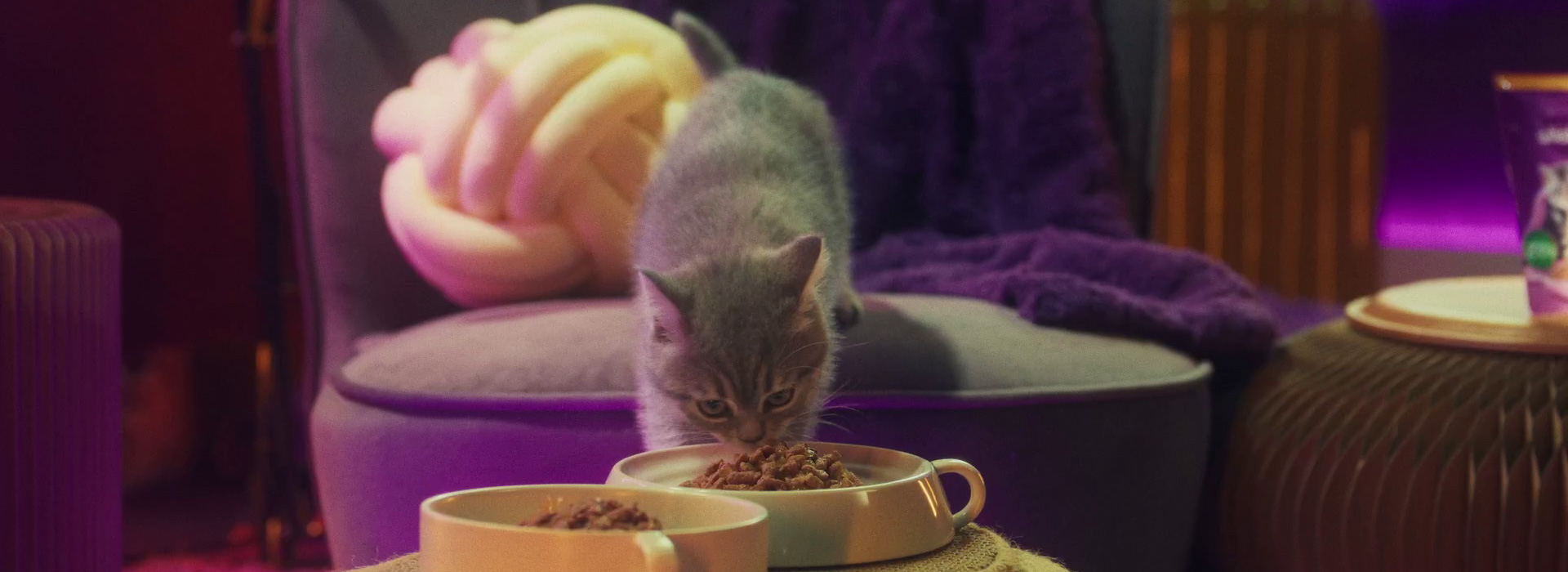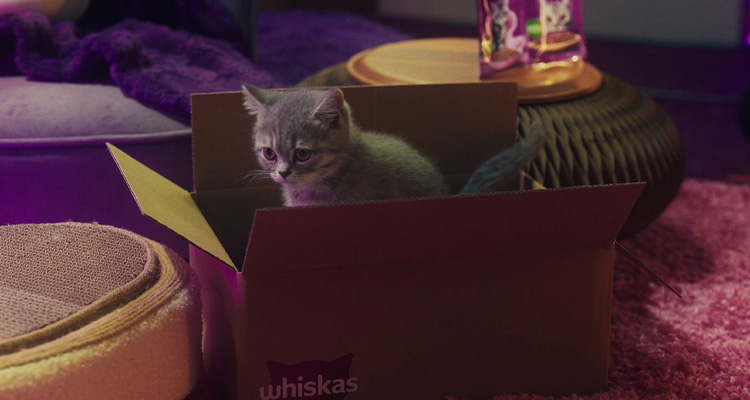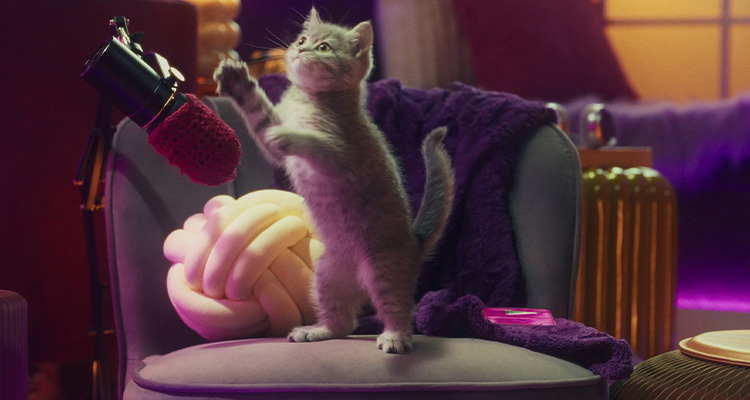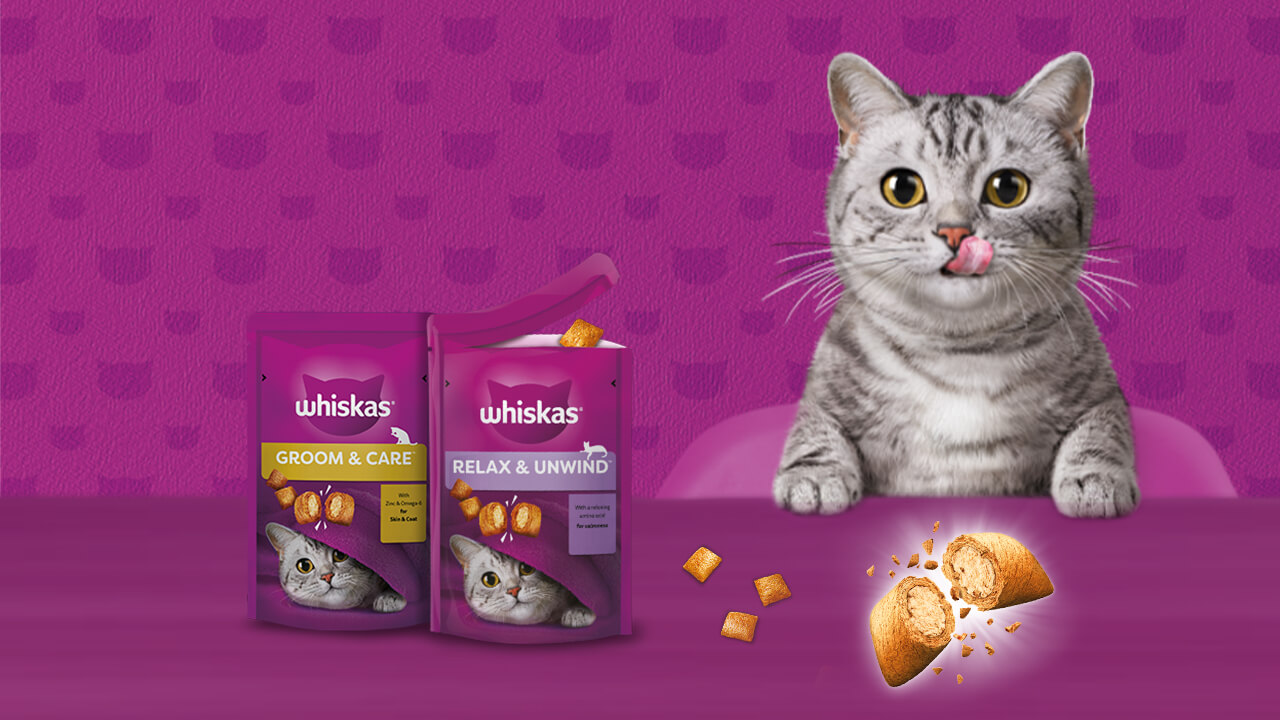

Agnes loves a good purr (and lets out more than one during the episode). But as Caspurr explains, purring isn’t just a sign of contentment. Sometimes, it’s a way for kittens to soothe themselves, to communicate with humans—or even to say, “I’m hungry, feed me now!”
This episode uncovers the surprising reasons behind that signature feline rumble. From sleepy snuggles to snack requests, your kitten’s purr can reveal more than you think. And with Caspurr’s calm commentary and Agnes’s wide-eyed wonder, it’s all explained in the most charming, paw-sitive way.
You’ll learn how to tell what your kitten’s purr is really saying—whether it’s comfort, calm, or just a clever way to get another treat. Because when it comes to kitten behaviour, there’s always more to the story (especially when Agnes is involved).
Tune in to “What Does My Kitten’s Purr Mean?” and discover the secret language behind that adorable sound.
If you enjoyed this episode of Purrcast, and want to understand more about the reasons why cats purr, read more in our article below.
Purring is the most common sound that cats make – and while cats purr when they're content, you shouldn't always assume that it means they’re in a good mood. Though most cats like to purr to show their happiness, as well as to bond with their mother as kittens, cats can also purr if they’re injured, thirsty, unwell, stressed or upset.
In this article, we examine the soft, continuous, vibrating sounds of purring to answer the questions of why do cats purr, how do cats purr, as well as how to make a cat purr to find out what our feline companions may be feeling, to help grow the unique bond between you.
Does purring mean your cat is happy?
In most cases, cats will purr when they are in a relaxed environment, sending out waves of calmness. This may also occur when you stroke them, and if this is the case, your feline friend is feeling happy or sociable. Another sure-fire solution to how to make a cat purr with happiness is to give them their favourite WHISKAS® cat food!
However, cats purr to communicate other emotions and needs, too. For instance, if you pick your cat up, they will either purr because they like it, or because they’re nervous. Some cats use purring to self-soothe, so it may be an indication that they’re feeling stressed, anxious or unwell if their purring isn’t accompanied by relaxed body language.
Why is your cat purring?
While you’ll never know exactly what your furry friend is trying to tell you with a purr, you can make an informed guess by considering the situation. Cat purring is a clever way in which cats communicate, but it can be used to convey both positive or negative emotions.
Cats can control their purring to some extent, using it for communication and manipulation, while it also occurs involuntarily as a reflex or coping mechanism.
A happy mood
Many cats purr when they’re happy. You’ll usually know this because it’ll be accompanied by other signs of contentment, such as relaxed stance, gentle head rubbing against you and possibly cat kneading. If your cat looks relaxed, eyes half closed and tail mostly still, it’s safe to assume your cat’s purring because they are in a pleasant mood. If you’re wondering how to make a cat purr through happiness and contentment, it’s usually as simple as stroking them in the way that they usually love, or giving them their favourite meal to enjoy.
Food on their mind
Cats may purr when it’s mealtime, and they're hungry. When purring for food, they often combine their normal purr with a “mew”. Your cat may continue purring as they eat, too. If the purring is normal for your cat, and it stops when you’d expect it to, such as when they finish eating and drinking, it’s usually safe to assume the purring was a hungry, happy purr.
Kitten and Mother bond
Kittens can purr at only a few days old, and is a way that they let their mothers know where they are or that they’re OK. Purring also helps a kitten and mother bond, and mother cats use purring as a lullaby. This purring can help to soothe both kittens and mum, and is thought to help stimulate the mother’s milk production as well as assist in other forms of subtle shared communication, such as where they’re located.
Relief
Many cats purr when hurt or in pain. Purring is a way for a cat to soothe itself, as it’s thought to bring a source of self-comfort. A pain-related purr might sound different to your cat’s usual purr, and may be accompanied by unusual behaviour such as a change in appetite, or being unusually sleepy or timid. If this happens, it’s best to consult your vet.
Healing
Have you ever wondered how does a cat purr when they’re not happy? It may be because they’re trying to tell you that something’s wrong, and some experts also believe that purring itself, because cats find it soothing and relaxing, may help cats get better faster.
Stimulated
Many cats who enjoy a little game will purr as they play. Purring can be caused by physical stimulation, such as stroking, using their favourite cat toy, or taking part in a game with you. Whilst playing with your cat can help you bond together, as well as bring your furry friend a source of entertainment, it’s worth keeping an eye on things to make sure your cat doesn’t become over-stimulated. If the purring gets intense and your cat is getting tired, stop the game and create a calm environment for them to relax instead.
Attention
Cats can use purring as a way to attract your attention without using a more jarring meowing noise. Some cats purr loudly when they’re thirsty, or if they want to be let outside. They also might use purring as a way to encourage you to stroke them or give them a tasty cat treat. Remember though that they may also be trying to tell you that something is wrong, so keep an eye out for any unusual behaviour.
Anxiety
Just like the way in which cats purr to self-soothe illness or injury, they also might start purring if they’re feeling anxious or stressed. If the purring is alternating with a cat's meow, wide eyes, hiding away or looking afraid, there may be something causing them stress. Anything from strange smells to loud toys, other animals or new people may make them feel unsettled, so try to create a calm, safe space for your cat to retreat to.
Whatever the reason for your feline friend’s purr, the sound is one that is often welcomed by cat parents. The purr is a feline lullaby that soothes the singer as well as the listener's soul.
How do cats purr?
If you’re wondering exactly how do cats purr, it’s a fascinating process of muscle contractions and the movement of air as the cat breathes. The familiar soft vibrating sound is caused by rapid muscle contractions in a cat’s voice box, diaphragm and chest muscles. The laryngeal muscles and vocal cords work together to produce the sound, as well as the rapid dilation and constriction of the glottis when the cat breathes in and out. As the air moves over these areas it creates that unique, continuous sound which we know and love. This also answers the question of how does a cat purr continuously, as the sound is created during both inhalation and exhalation.
The benefits of purring to humans
Experts believe that the sound of a cat purring contentedly helps to have a calming effect on humans. It’s frequently associated with helping to reduce stress and temporarily lower blood pressure, particularly if we’re stroking our furry friends as they purr. The pleasant sound they show us once you understand how to make a cat purr is one of the many pleasures of being a cat owner, and it helps to enhance your bond whilst helping you both relax. It also helps you communicate together effectively, building a loving sense of companionship, shared affection and mutual trust.
Why do cats purr - Key takeaways
Now you know the answer to how does a cat purr, it pays to keep an eye on your feline friend to see what they might be trying to tell you when they make the sound. If your cat is relaxed and happy, you can enjoy their contentment and continue to build a close bond together as they treat you to your own little lullaby. However, if your cat seems unsettled or unhappy, or their purr changes in pitch or happens continuously, it’s important to consult your vet to rule out any possible health concerns.
Delve further into the wonderful world of cat communication in our blog, and discover the meaning behind cat body language as well as what does it mean when a kitten purrs?
Why do cats purr - FAQs
What does it mean when cats purr on you?
Cats can purr on you to show their happiness and contentment, as well as when they’re enjoying being stroked or played with. They may also want to get your attention or show you that they’re hungry. Cats might also purr to self-soothe if they’re feeling anxious or unwell.
Are cats really happy when they purr?
Generally, a happy cat purr is accompanied by relaxed body language. If their eyes seem half closed and tail mostly still, it’s likely a happy purr. If your cat seems unsettled though as they purr, or they’re behaving unusually, they may be trying to tell you that something’s wrong.
Do cats control their purring?
Cats have control over when they purr and when they don’t. They use purring as a clever form of communication. The answer to how does a cat purr lies in the contracting of muscles in their throat and airway, coupled with the movement of air as they breathe.
Do cats purr consciously?
Purring is a voluntary noise which cats choose to make, and they purr consciously to communicate how they’re feeling. If you’ve ever wondered how does a cat purr when they sleep, it’s because cats snooze lightly to avoid potential predators, so they’re often able to continue purring when extremely relaxed.














